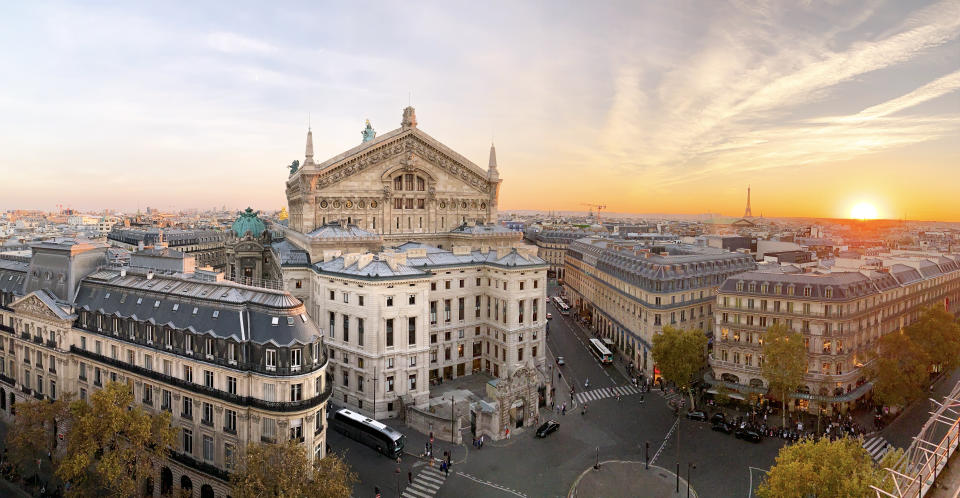Economist: Free markets are hurting average middle-class families
America was proudly built on the economics of free markets, but assessing the corporate landscape today, genuine competition is on life support and the average American is paying the price.
“My estimate is that the median household in the U.S., you know, household that earns between $40,000 and $50,000 a year, is paying — its purchasing power is $5,000 less than it should be if markets had remained competitive. That's $5,000 per year for the median household, “ said NYU professor and economist Thomas Philippon, author of the new book, "The Great Reversal: How America Gave up on Free Markets"
That wasn’t always the case, Philippon told Yahoo Finance’s On The Move. According to Philippon, decades of lax regulations and limited use of antitrust laws have led to so much corporate consolidation in the U.S. it has killed competition. Twenty years ago Philippon arrived in the U.S. as a student and was struck by how goods and services were cheaper in the U.S. than his home country of France. That’s not the case anymore.
“Today, many of these goods and services, airline tickets, cellphone services, access to broadband internet at home, all of these things are way cheaper in France, the UK, Germany, Korea than in the U.S.,” he said.
Oligopolies everywhere
Big companies merged while fewer companies entered the marketplace due to punitive rules placed on smaller businesses in the U.S., according to Philippon. “You put that together for 20 years. And 20 years later, you get oligopolies everywhere,” he said.
In contrast, Europe’s strict antitrust laws blocked companies from merging and ensured new companies could enter the marketplace, he said. In the 1990s the newly formed European Union adopted “the American playbook,” said Philippon. “So we essentially took the U.S. playbook, put it to work in Europe with a very strong and independent regulator and let it run for 20 years. And 20 years later, we have much more competition in many industries.”

Philippon cited one example: The French telecom industry was forced to adapt to competition, which led to a win for consumers. “We used to have three operators, all legacy carriers, very high prices, totally oligopolistic. So they would all offer the same service at the same price. So you had the choice of 45 euros or 45 euros or 45 euros, great.”
There was a fourth operator [Free Mobile] which was “seeking a license and of course, as you can imagine, the three oligopolies were heavily lobbying regulators not to grant the license,” he said. They lost in 2011 and Free Mobile got its license. “Within six months, they entered the market at 20 euros where the other guys were at 45. A year later, all the legacy carriers had to match the price which was at 20 now. So that's how we went from being 20% more expensive than the U.S. in cellphones to 30% cheaper. And now we are 50% cheaper.”
Improving the life of the middle class
Today in the U.S. conversations about antitrust laws typically involve the tech industry because it’s one area that has bipartisan consensus. “They want to beat up Facebook and Google. Apart from that, they agree on nothing,” Philippon said, noting that it’s fine to start there but it will take years to break up or regulate the big tech companies.
And even if you do, “it’s not going to put a lot of money back into people’s pocket,” Philippon said, adding that you’re not going to get the $5,000 per year back “by beating up Facebook and Google.”
It’s a good start, though. “If you successfully do something against the Big Tech you’re going to be in a much better position to then go after the big ticket items,” he said, referring to transport, telecoms, and health care. “That's where the money is. That's where people overpay.”
Yvette Killian is a producer for Yahoo Finance’s On The Move.
Read the latest financial and business news from Yahoo Finance
READ MORE:
Richard Branson: Virgin Galactic could send 'hundreds of thousands' of people into space
UPS CEO: 'We have a mutually beneficial relationship' with Amazon
Forget FAANG, investors should consider MANG
Shaq on investing: 'I don’t ever think about making money'
Follow Yahoo Finance on Twitter, Facebook, Instagram, Flipboard, SmartNews, LinkedIn, YouTube, and reddit.

 Yahoo Finance
Yahoo Finance 